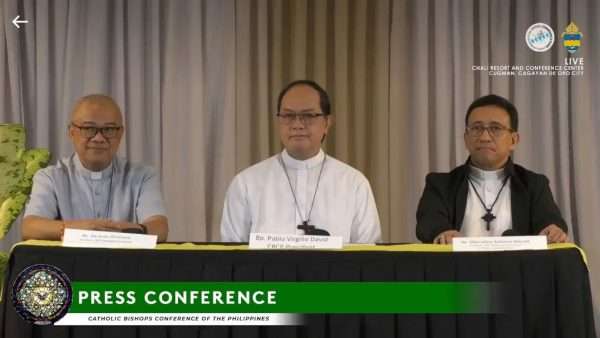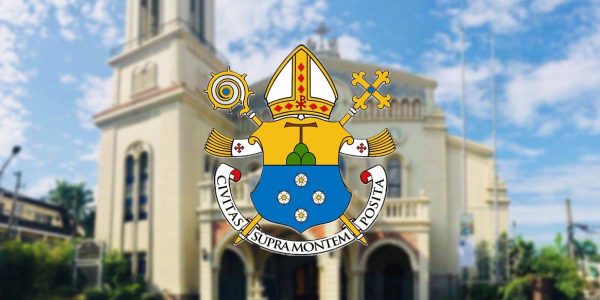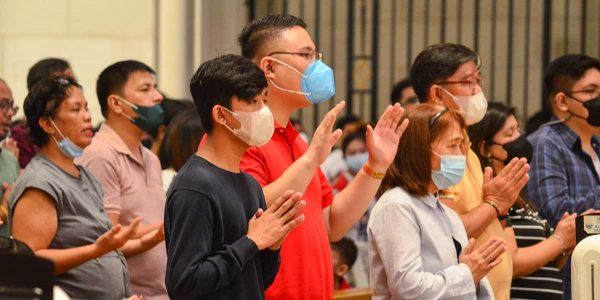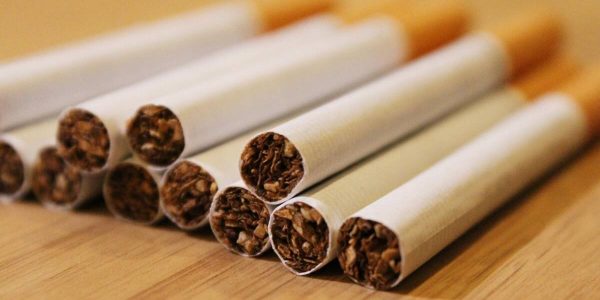252 total views
April 21, 2020, 2:42PM
Lumabas sa Radio Veritas Truth Survey, sa kabila ng lockdown na sanhi ng Luzon-wide Enchanced Community Quarantine, mayorya sa mga Filipino ay nag-aalala sa kaligtasan ng kapwa.
Base sa 10-kalagayang emosyunal ng mga taong hindi nakakalabas ng bahay dahil sa lockdown, 27.10-percent ng 1,200 respondent ang nagpahayag ng pag-alala sa kaligtasan ng kapwang naka-quarantine dahil sa coronovirus disease pandemic.
Ang 10-emotional disposition ay kinabibilangan ng 1. Safe 2. Worried 3. Hopeful 4. Bored 5. Concerned for others 6. Helpless 7. Relaxed 8. Thankful 9. Sad 10. Stressed
Ayon sa VTS, 66-porsiyento ng mga Filipino ang nagsasabing positibo ang ECQ.
EMOTIONAL DISPOSITION OF ECQ RESPONDENTS IN LUZON
This Survey initiated by Radio Veritas uses a stratified sample of 1,200 respondents from Luzon for a +/- 3% margin of error (gathered through a text-based and online data gathering process) the following information is indicative of the “emotional disposition” of respondents currently undergoing home isolation under the Luzon-wide Enhanced Community Quarantine (ECQ) inclusive of the dates covering March 15 to April 15, 2020. Results of which are as follows:

This Survey initiated by Radio Veritas uses a stratified sample of 1,200 respondents from Luzon for a +/- 3% margin of error (gathered through a text-based and online data gathering process) the following information is indicative of the “emotional disposition” of respondents currently undergoing home isolation under the Luzon-wide Enhanced Community Quarantine (ECQ) inclusive of the dates covering March 15 to April 15, 2020. Results of which are as follows:
The current ECQ elicited at least ten emotional responses from the respondents: (1) Safe, (2) Worried, (3) Hopeful, (4) Bored, (5) Concerned for Others, (6) Helpless, (7) Relaxed, (8) Thankful, (9) Sad and (10) Stressed. Five of which were positive emotions — Safe, Hopeful, Concerned for Other, Relaxed and Thankful; while the other five were negative emotional responses — Worried, Bored, Helpless, Sad and Stressed.
When ranked accordingly (from the dominant to the least prevailing) the emotions are as follows: (1) Concerned for others – 27.10%, (2) Safe – 20.90%, (3) Worried – 19.40%, (4) Hopeful – 15.30%, (5) Bored – 5%, (6) Thankful – 4.10%, (7) Stressed – 3.50%, (8) Sad – 2.90%, (9) Relaxed 1.20%, and (10) Helpless – 0.60%. Three Positive emotions are within the top 5 with CONCERN FOR OTHERS as the top emotional response. This implies the “altruistic” predisposition of the respondents towards their family member and loved ones, which are currently not with them physically. It may likewise be directed towards those in the “frontline” in our fight against this COVID19 Health Crisis (who may either be a family member, relative, friend, acquaintance or compatriot). On the other hand, the predominant negative emotion at rank 3 is being WORRIED thus implying the sense of anxiety this Health Crisis brings to the respondents. Such worry or anxiety may be suggestive of the health and economic concerns this health crisis brings.
Finally, the positive emotions — Safe, Hopeful, Concerned for Other, Relaxed and Thankful — accounts for 68.6% of all the emotions felt by the respondents. Thus signifying that the negative emotions — Worried, Bored, Helpless, Sad and Stressed — at 31.4% comes quite lesser as an emotional disposition of the respondents. This denotes that overall Luzon respondents under home isolation see this ECQ more positive rather than negative.
Note: Segmentation analysis of this survey is available upon further request.
































